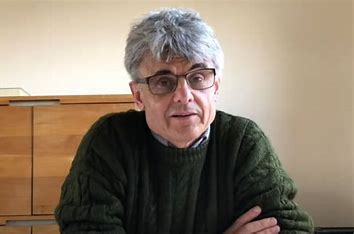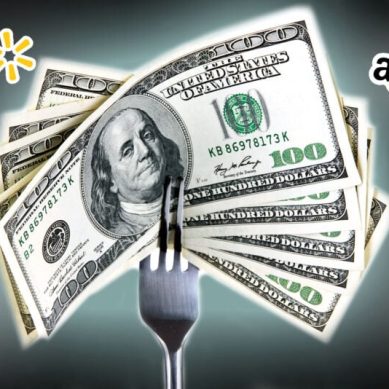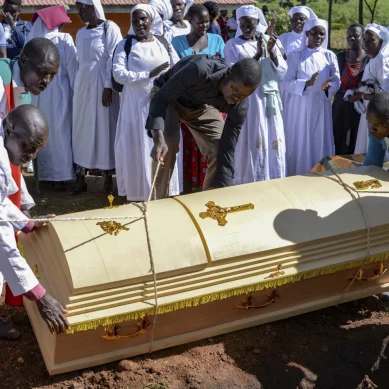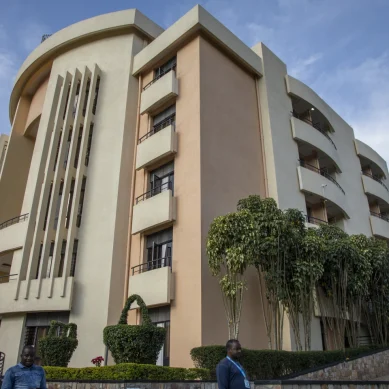
In light of the danger posed Covid-19 booster vaccination, independent virologist and vaccine expert, Prof Geert Vanden Bossche, says he has been guardedly optimistic as he sees natural immunity succeeding against the new viral strains, despite the ineffectiveness of the vaccines.
“The population is now regaining the functionality of its innate immune system – that we know is protective against coronavirus,” he said.
Several new studies also indicate that people who have been vaccinated and boosted may be more likely to be infected with Covid-19 than their unvaccinated counterparts. A Cleveland Clinic preprint study, also cited in the Wall Street Journal opinion piece, studied approximately 50,000 healthcare workers in the Cleveland Clinic healthcare system to evaluate the efficacy of the bivalent boosters.
The study found the bivalent boosters offered moderate (30 per cent) protection against infection while the BA.5 variant was spreading. It also found that workers who received more doses of the vaccines were at higher risk of getting sick: Those who received three doses were 3.4 times as likely to get infected as the unvaccinated and those who received two doses were 2.6 times as likely to get infected.
“This is not the only study to find a possible association with more prior vaccine doses and higher risk of Covid-19,” the authors noted, citing other studies with similar findings.
“We still have a lot to learn about protection from Covid-19 vaccination, and in addition to a vaccine’s effectiveness it is important to examine whether multiple vaccine doses given over time may not be having the beneficial effect that is generally assumed.”
Former New York Times reporter Alex Berenson reported on another study published December 14, 2022, in the American Journal of Public Health that compared vaccinated people with those who had been previously infected in 2021 and early 2022.
Using a database from the state of Indiana, the authors found that people who had been vaccinated against Covid-19 were more than twice as likely to be infected as those who had a previous Covid-19 infection. The researchers found about 1 in 15 vaccinated people was infected, compared to 1 in 33 people who had a previous infection.
“The study’s results are worse than they first look, because the researchers started counting 30 days after a vaccine recipient received the first dose,” Berenson wrote, “thus excluding the period immediately after the first dose in which many newly vaccinated people become infected.”
An investigation by The Epoch Times found that in many states, people in the US who received Covid-19 boosters are more likely than those who received only a primary series to get infected, receive hospital care and die.
The Epoch Times reviewed publicly available data and public records requests from 2022 for 19 states. The major limitation of the study, The Epoch Times acknowledged, was that the data was not adjusted for age and other important variables, which could bias the findings.
Despite that limitation, “It is unassailable that a very large fraction of highly inoculated [people] are among those being hospitalized or dying,” Dr Robert Malone, inventor of the mRNA vaccine, told The Epoch Times.
“So, at a minimum, the effectiveness in preventing hospitalization or death does not appear to be aligned with the official policy position.”
Despite XBB.1.5’s growth in proportion, experts say any overall increase in Covid-19 cases may just be attributable to seasonal fluctuation and it remains uncertain, or unlikely, that XBB.1.5 will drive a new wave.
Whether the new subvariant “will lead to a surge in the absolute number of cases is still not certain,” cautioned Jesse Bloom, an evolutionary biologist at Fred Hutchinson Cancer Center, in a Twitter thread explaining the new variant.
“In general human coronaviruses (and other respiratory viruses) surge in winter,” he added.
Andrew Pekosz, a professor at Johns Hopkins Bloomberg School of Public Health who studies viral replication, told CNN, “Most public health officials would have expected an increase in Covid-19 cases, even before we knew about XBB.1.5.”
“So whether the increases in Covid cases that are occurring during the holidays are occurring because of the social interactions that people have had or whether they’re specifically related to XBB.1.5 is still something that isn’t clear. Both of those things are probably contributing,” he added.
Ravi Gupta, professor of clinical microbiology at the University of Cambridge told The Guardian, “It [XBB.1.5] might drive an increase in cases, but I’m not convinced this will necessarily cause an explosive wave of infections.”
“I don’t think there’s any cause to panic,” Gupta added. “The main thing we worry about is the severity of the disease, and there is no evidence that it’s more severe.”
- A Children’s Health Defender report / Staff Writer











